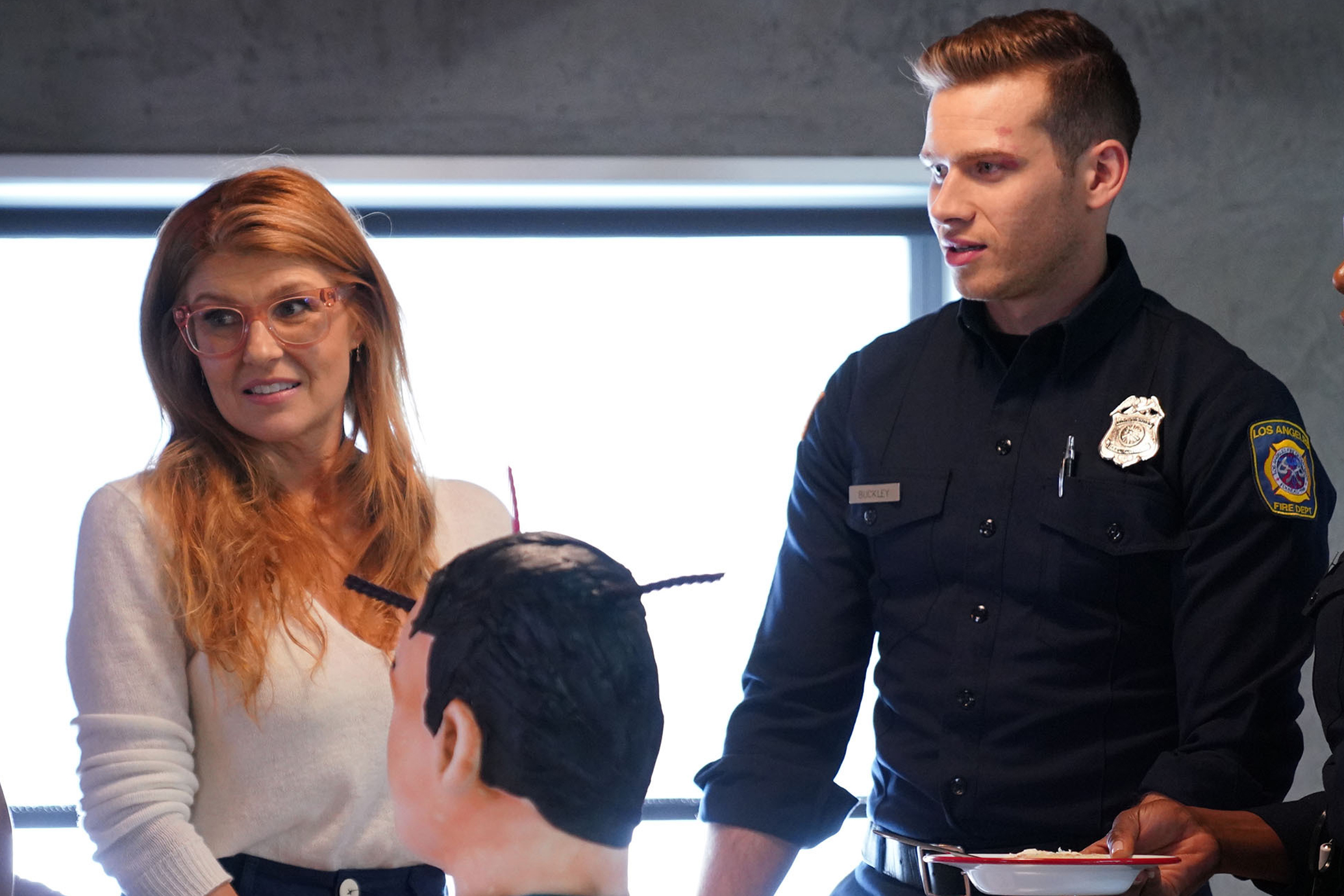- Seeking Answers - When Does 911 Return To TV?
- What's the Real Difference Between "Do" and "Does"?
- How Do We Use "Do" with Different Subjects?
- When Does "Does" Step In?
- Auxiliary Verbs - How Do They Help Us Ask and Tell?
- A Quick Peek at "Did" - Past Tense Insights
Lots of folks are curious about things, like when a favorite program might be back on the air, so you might wonder, "when does 911 return to tv?" This kind of question, a rather common way to express curiosity, really brings to light some basic yet important parts of how we speak and write every day. Getting the words just right when you ask something, or even when you just make a statement, truly makes a big difference in how clear your message comes across. It's like having the right key for a specific lock, you know?
Actually, forming questions, or even making simple statements, often relies on a couple of small but mighty words: "do" and "does." These two little helpers are present tense forms of the verb "to do," and they play a really big part in how we put sentences together. It's almost as if they are the quiet conductors of our everyday language, helping everything flow smoothly. Without them, our sentences might feel a bit jumbled, or maybe even a little confusing for someone trying to understand what we mean.
- Ring Box Subscription
- Naked Loving Sex
- Donal Logue Gotham
- Crochet Sleeping Mask
- How Old Is Susan Cavallari
So, figuring out when to use "do" and when to use "does" is pretty important for anyone hoping to communicate clearly in English. It's a fundamental aspect of the language, something that really helps you speak and write in a way that feels natural and correct. This guide, you see, aims to clear up any lingering questions about these two often-mixed-up words, along with a quick look at their past tense relative, "did."
What's the Real Difference Between "Do" and "Does"?
The core of how we tell "do" and "does" apart really comes down to the subject of your sentence. It's quite simple when you think about it: one is for certain subjects, and the other is for different ones. They are both ways to talk about actions happening right now, in the present moment, but they just have their own specific places where they fit best. This distinction is, in some respects, a basic building block for crafting sentences that sound right to a native speaker's ear. You might find yourself wondering why it matters so much, but it truly helps keep things neat and tidy in our conversations.
The Core of "Do" and "Does" - When Does 911 Return to TV's Usage?
Basically, the decision about which form to pick, whether it's "do" or "does," really hinges on the noun or pronoun that's doing the action in your sentence. If the thing performing the action is singular, meaning just one, you'll typically lean towards "does." But if there are many things doing the action, or if the subject is one of those special pronouns, then "do" is usually the way to go. It's a rather straightforward rule, and once you get the hang of it, it becomes second nature, like knowing how to tie your shoes. This choice, you know, helps make sure your sentences have the right sound, especially when asking about something like "when does 911 return to tv?"
- Good News Sneakers
- How To Use A Barrel Swivel
- Is Flo Still Alive From Alice
- Who Shot Cheyenne And Zach
- Caitlin Clark Flying Commercial
How Do We Use "Do" with Different Subjects?
When it comes to the word "do," it has its own set of companions, so to speak. You will find it hanging out with certain pronouns, making sure the sentence feels natural and correct. This particular form of the verb "to do" is quite versatile, actually, and it covers a good chunk of the subjects you might use in your daily chats. It’s like a common tool in a toolbox; you reach for it pretty often because it fits so many situations.
"Do" with "I," "You," "We," and "They" - A Look at Who "Returns"
You will nearly always use "do" when your sentence begins with "I," "you," "we," or "they." These pronouns, you see, are considered plural in their agreement with verbs, even "I" and "you," which can be singular in meaning. For instance, if you want to say that you truly enjoy a certain food, you'd say, "I do like pizza," not "I does like pizza." That just sounds a bit off, doesn't it? Similarly, if a group of friends is going to a concert, you'd say, "They do want to go," not "They does want to go." This pattern also holds true for plural subjects that are not pronouns, like "the students" or "my neighbors." For example, "The students do their homework," or "My neighbors do enjoy their garden." This helps clarify who is doing what, especially when we talk about things like when something, or someone, "returns."
It's pretty much the same for "you," whether you are talking to one person or many. "You do a great job." Or, if you are speaking about a group, "You all do fantastic work." The word "we" also pairs up with "do." "We do our best every day." This consistent pairing helps keep our language clear and easy to follow. It's just how the language works, you know, a simple rule that helps us speak without much fuss.
When Does "Does" Step In?
Now, for the other side of the coin, "does" has its own specific group of subjects it prefers to be with. This form of the verb "to do" is used when the subject of your sentence is just one person or thing, and it's not "I" or "you." It's quite specific, actually, and learning this helps avoid those little grammatical bumps in the road. It’s a very common point where people sometimes get a little mixed up, but it's easily cleared up with a bit of practice.
Singular Subjects and "Does" - Understanding the "TV" Show's Form
When you are talking about a single person or a single thing, and that person or thing can be replaced by "he," "she," or "it," then "does" is the word you'll want to use. For example, if you're talking about a friend who lives in a particular city, you would ask, "Does she live in Madrid?" You wouldn't say, "Do she live in Madrid," because "she" is a singular subject. Similarly, if you are referring to a single item, like a car, you might say, "The car does need new tires." This is because "the car" is a single thing. This is the third-person singular form, and it's a very consistent rule in English. It helps us understand the singular form, just like how a single "TV" show might have its specific return date.
This rule applies to all singular nouns too, not just pronouns. So, "John does enjoy reading," or "The dog does love to play." These examples show how "does" pairs up with one person or one animal. It's a fundamental part of making your sentences sound natural and grammatically sound. So, next time you are trying to figure out which one to use, just ask yourself if the subject is singular and can be swapped for "he," "she," or "it."
Auxiliary Verbs - How Do They Help Us Ask and Tell?
Beyond simply being action words, "do" and "does" also have another really important job in English: they act as auxiliary, or "helping," verbs. This means they assist other main verbs in a sentence to form questions, create negative statements, or even add emphasis to something you are saying. It's quite a powerful role for such small words, almost like they are the support beams for certain kinds of sentences. They don't always carry the main meaning, but they certainly help the main meaning get across clearly.
Forming Questions and More - When Does 911 Return to TV's Auxiliary Role?
When we want to ask a question in the present simple tense, we almost always bring in "do" or "does" to help us out. For instance, if you want to know about someone's daily habits, you might ask, "Do you wake up early?" Here, "do" is helping the main verb "wake up" form a question. Or, as we saw earlier, "Does she live in Madrid?" In this case, "does" helps "live" become a question. These auxiliary forms are pretty much essential for proper question formation. They also step in when we want to make a statement negative. For example, "I do not like that," or "He does not understand." They also add emphasis, like in "I do believe you," or "She does work hard." So, when thinking about "when does 911 return to tv," the "does" there is playing this auxiliary role, helping to shape the question itself.
It's really interesting how these little words can change the entire meaning or purpose of a sentence. They are like the little gears that make a big machine work smoothly. Without them, our questions might sound more like statements, and our negative sentences might feel a bit incomplete. This is why getting a good grasp on their use as helping verbs is so valuable for clear communication.
A Quick Peek at "Did" - Past Tense Insights
While our main focus has been on "do" and "does" in the present tense, it's also worth a quick mention of their past tense counterpart, "did." This word, you know, comes in handy when you're talking about actions that have already happened. It follows a much simpler rule than "do" and "does" because it doesn't change based on whether the subject is singular or plural. This makes it a little less tricky to use, which is pretty nice.
Beyond Present Tense - How "Did" Works When 911 Returned
"Did" is the form of "do" that you use for all subjects in the simple past tense. So, whether you are talking about "I," "you," "he," "she," "it," "we," or "they," "did" remains the same. For example, "I did my homework yesterday," or "They did go to the party." It's also used to form questions about past events: "Did you finish your work?" or "Did she call you?" This consistency makes "did" a bit easier to handle once you've gotten the hang of "do" and "does." It's like a simplified version for past actions, such as asking about something that already "returned."
This means that when you are discussing something that happened in the past, you don't have to worry about matching "did" to a singular or plural subject. It just works for everyone. This simplifies things quite a bit, allowing you to focus on the action itself rather than the verb form. It's a pretty handy word to have in your language toolkit, making past conversations flow smoothly.
- Revlon One Step Volumizer Plus Attachments
- Fred And Ethel I Love Lucy
- Blake Lively Zodiac Sign
- Payton Koch Naked
- Meaning Of The Name Zaya


